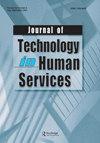三角视角,以告知智能手机应用程序的发展寄养,亲属关系,和收养父母
IF 1.5
Q2 SOCIAL WORK
引用次数: 0
摘要
本文描述了一个以用户为中心的归纳过程的初始阶段,为智能手机应用程序(app)的开发提供信息,以补充面向儿童福利资源父母(即寄养父母、亲属父母和养父母)的面对面创伤知识和技能培训班。基于技术发展的参与式设计方法,设计了一项定性研究,以获取资源父母、培训教师和育儿教育专家的相关知识和意见。在这些利益相关者群体中出现的最普遍的主题包括需要一个简单的应用界面,以及应用的潜力:(1)培养联系、肯定和对抗资源父母的孤立感;(2)强化课堂知识,支持家庭技能练习;(3)随着时间的推移,监测资源父母、孩子和家庭的进展。本文提出了详细的研究结果,包括直接引用焦点小组和访谈参与者的意见,以及对流行主题的阐述,这可能会在人类服务应用程序设计的早期阶段使其他人受益,并有助于为基于技术的人类服务干预措施的发展制定指导方针。本文章由计算机程序翻译,如有差异,请以英文原文为准。
Triangulating perspectives to inform the development of a smartphone application for foster, kinship, and adoptive parents
Abstract This article describes the initial phase of a user-centered, inductive process for informing the development of a smartphone application (app) to complement an in-person trauma-focused knowledge and skills training class for child welfare resource parents (i.e. foster, kinship, and adoptive parents). Based on the participatory design approach for technology development, a qualitative study was designed to capture and triangulate relevant knowledge and opinions from resource parents, training instructors, and parenting education experts. The most prevalent themes emerging among these stakeholder groups included the need for a simple app interface and the potential for the app to (1) cultivate connection, affirmation, and combat resource parent feelings of isolation; (2) reinforce in-class knowledge and support skill practice at home; and (3) monitor resource parent, child, and family progress over time. Detailed findings are presented, including direct quotes from focus group and interview participants and elaboration on the prevalent themes, which may benefit others in the early stages of human services app design and contribute to the creation of guidelines for the development of technology-based human services interventions.
求助全文
通过发布文献求助,成功后即可免费获取论文全文。
去求助
来源期刊

JOURNAL OF TECHNOLOGY IN HUMAN SERVICES
SOCIAL WORK-
CiteScore
4.20
自引率
6.70%
发文量
6
期刊介绍:
This peer-reviewed, refereed journal explores the potentials of computer and telecommunications technologies in mental health, developmental disability, welfare, addictions, education, and other human services. The Journal of Technology in Human Services covers the full range of technological applications, including direct service techniques. It not only provides the necessary historical perspectives on the use of computers in the human service field, but it also presents articles that will improve your technology literacy and keep you abreast of state-of-the-art developments.
 求助内容:
求助内容: 应助结果提醒方式:
应助结果提醒方式:


